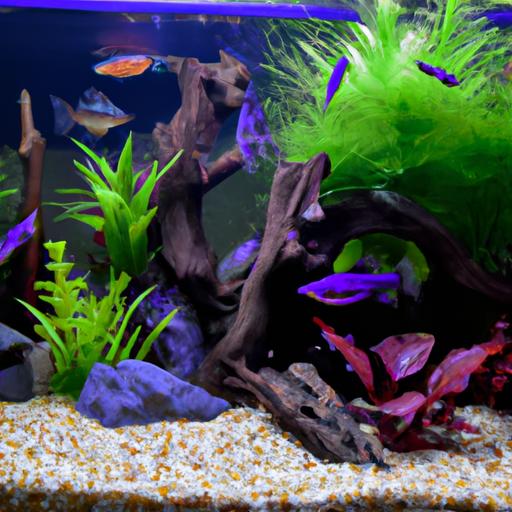
Tips for Successful Freshwater Fish Keeping
Discover essential tips for successful freshwater fish keeping. Learn how to select the right species, set up an ideal aquarium, and maintain water quality.
Introduction
Are you considering venturing into the world of freshwater fish keeping? It’s an exciting hobby that brings life and tranquility to any space. However, to ensure the well-being and longevity of your aquatic companions, it’s crucial to understand the essential tips for successful freshwater fish keeping. In this article, we will guide you through the key aspects of creating a thriving freshwater aquarium, from selecting the right fish species to maintaining optimal conditions. So let’s dive in and explore the secrets of successful fish keeping!
Tips for Successful Freshwater Fish Keeping
Selecting the Right Fish Species
When starting your freshwater fishkeeping journey, it’s crucial to choose fish species that are suitable for beginners. Some fish, like Betta fish or guppies, are known for their adaptability and ease of care. Research various species and consider factors such as size, temperament, and compatibility with other fish. By selecting the right species, you’ll set yourself up for a successful and enjoyable fishkeeping experience.
Setting Up an Ideal Freshwater Aquarium
Creating a comfortable and suitable environment for your freshwater fish is a fundamental step. Start by selecting an appropriate tank size based on the number and size of fish you plan to keep. Ensure the tank has a secure lid to prevent any accidental escapes and maintain a stable water temperature using a reliable heater. Proper filtration is also crucial for removing impurities and maintaining water quality.
Maintaining Water Quality
Water quality is of utmost importance for the health of your freshwater fish. Regularly test the water parameters such as pH, ammonia, nitrite, and nitrate levels to ensure they are within the recommended range for your fish species. Perform partial water changes to maintain cleanliness and stability in the tank. Additionally, consider using a water conditioner to remove harmful chemicals from tap water before adding it to the aquarium.
Feeding and Nutrition for Freshwater Fish
Proper nutrition is essential for the well-being of your fish. Research the dietary requirements of your specific fish species and provide a balanced diet. Most freshwater fish thrive on a combination of high-quality commercial fish food, supplemented with occasional live or frozen food treats. Avoid overfeeding, as it can lead to health issues and compromised water quality.
Maintaining a Healthy Environment
In addition to water quality and nutrition, maintaining a healthy environment for your fish is vital. Ensure the tank is adequately aerated to provide oxygen to the fish. Decorate the aquarium with suitable plants, rocks, and hiding places to mimic their natural habitat and provide a sense of security. Regularly clean the tank to remove excess waste and debris, as it can contribute to poor water quality and stress the fish.
Regular Monitoring and Observation
To ensure the well-being of your freshwater fish, regular monitoring and observation are crucial. Keep an eye out for any signs of illness or distress, such as changes in behavior, loss of appetite, or physical abnormalities. Act promptly if you notice any issues, as early intervention can prevent further complications. Regularly observe your fish to understand their habits and preferences, enabling you to provide a more enriching and fulfilling environment.
FAQ (Frequently Asked Questions)
Can I keep multiple fish species in the same tank?
Yes, it is possible to keep multiple fish species in the same tank. However, it’s essential to consider their compatibility, size, and behavior. Some species may be aggressive towards others, while others may require specific water conditions. Research the compatibility of different species and consult with experts or experienced fishkeepers to ensure a harmonious community within your aquarium.
How often should I clean the aquarium?
Regular maintenance is vital for a healthy aquarium. Perform partial water changes of around 25% every two weeks to remove accumulated waste and maintain water quality. Additionally, clean the tank walls, gravel, and decorations as needed to prevent the buildup of algae and debris. However, avoid excessive cleaning, as it can disrupt the beneficial bacteria that contribute to a balanced ecosystem in the aquarium.
What are some signs of illness in freshwater fish and how to treat them?
Signs of illness in freshwater fish can vary but may include unusual swimming patterns, loss of color, visible lesions, or abnormal breathing. If you notice any of these signs, it’s crucial to take immediate action. Isolate the affected fish to prevent the spread of disease and consult with a veterinarian or knowledgeable fishkeeper for proper diagnosis and treatment options.
Can I use tap water for my aquarium?
Tap water can be used for your aquarium; however, it requires proper conditioning. Tap water often contains chlorine, chloramines, and heavy metals that can be harmful to fish. Use a water conditioner specifically designed for aquarium use to neutralize these chemicals before adding the water to your tank. Additionally, consider testing your tap water for other parameters such as pH and hardness to ensure they are suitable for your fish species.
How long can freshwater fish live?
The lifespan of freshwater fish can vary greatly depending on the species, care, and genetic factors. Some fish may live for only a few years, while others can live for several decades. It’s essential to research the average lifespan of your specific fish species and provide appropriate care to maximize their longevity.
Conclusion
Successfully keeping freshwater fish requires a combination of knowledge, dedication, and proper care. By following the tips outlined in this article, you can create a thriving aquarium environment for your fish, ensuring their health and well-being. Remember to select suitable fish species, set up an ideal aquarium, maintain water quality, provide proper nutrition, and regularly monitor and observe your fish. With these essential tips, your journey into freshwater fish keeping will be both rewarding and enjoyable. Start your adventure today and witness the beauty and serenity that freshwater fish can bring to your life.






























.jpg)